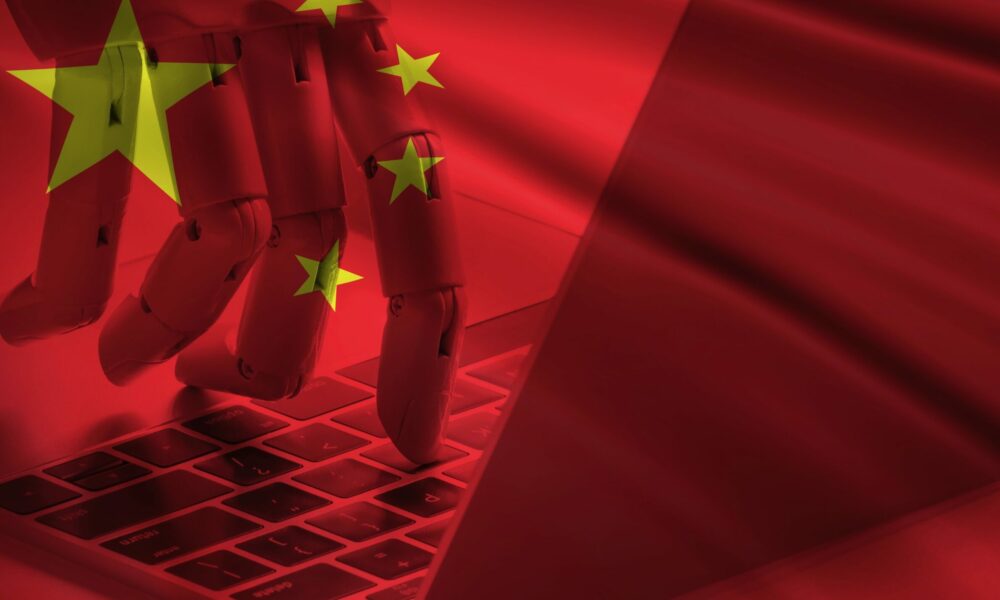
China has announced plans to introduce rules to govern the AI industry at a time when ChatGPT has created excitement in the Asian economy. According to a government official, the country is looking at safeguarding and controlling the use of AI across industries as the tech continues to evolve.
Minister of Science and Technology Wang Zhigang told journalists on Friday how the second largest economy viewed AI as a strategic industry, and therefore would continue monitoring its development to gain a better understanding of it.
Also read: Infants Outperform AI Models in Identifying Human Motivations
“We have to see that ChatGPT is doing very well,” said Zhigang at the briefing.
“Following the emergence of new technology, including AI, our country will introduce relevant measures (to regulate them) in an ethical manner,” he added.
According to a Bloomberg report, the introduction of these rules may be intended to ensure ChatGPT-like services hew to the Communist Party’s censorship of controversial or undesirable online content.
However, Bloomberg says this could also be a shot in the arm for tech companies like Baidu.
Shares of Chinese AI-related companies jumped on Friday following Zhigang’s announcement. AI chipmaker Cambricon Technologies Corp paced the fastest with a 7.3% jump followed by 360 Security Technology, which added 7% to its value. Beijing Deep Giant Technology rose by more than 3%.
Zhigang’s announcement follows reports that regulators have forced Chinese apps and websites to terminate services that route users to ChatGPT, partly due to content and data concerns.
Regulation will take time
Since OpenAI released its ChatGPT to the market in November, the bot has charmed users and caused US and Chinese tech firms to scramble for the technology, with firms unveiling projects of the same nature. Microsoft, which has a stake in OpenAI, has highlighted how the tech could supplement its Bing search engine. Google also showed off its new product Bard, also to incorporate the AI features.
Not to be outdone, major Chinese tech firms have announced their interest in the technology and are already integrating it into their products.
The Bloomberg report says it is unclear how China views the involvement of private sector in the AI industry, particularly given the deep-seated suspicion of increasingly powerful internet firms, which resulted in crackdowns on sector leaders from Ant Group Co to Alibaba and Didi Global.
Given the interest in ChatGPT, a fascinating essay by @LiYuan6 about how China led in AI technology but then fumbled because of political controls. Chinese techies joke, "We need to teach machines not only how to speak, but also how not to speak.” https://t.co/bNzPLsnDDJ
— Nicholas Kristof (@NickKristof) February 17, 2023
There have also been concerns from ChatGPT’s users over the dangers of abusing the technology, from its ability to draw out disturbing responses to its potential to displace humans.
Zhigang, however, admitted it would take time for authorities to come up with a clear set of regulations.
He said measures “will come after we understand the technology.”
Experts say appeasing China’s complex censorship machine is difficult enough for search and social media companies. Now, trying to keep a malleable AI bot in check is a new kind of challenge.
Is China obsessed with chatbots?
Although not yet officially launched there, ChatGPT is now big in China, following its release to other markets a few months ago. The technology is reported to be available through the Chinese super-app, WeChat.
Search giant Baidu has since announced plans to introduce its conventional AI tool Ernie Bot in March. Baidu, which is also known for its autonomous driving technology, leads China’s efforts to create an equivalent of ChatGPT. The bot will complete internal testing in March before making the service public.
Other high-profile Chinese companies like China International Capital Corp are supposedly experimenting with the technology’s potential to transform everything from finance to health care. Alibaba Group Holdings, NetEase, and Tencent Holdings have promised similar initiatives.
According to Bloomberg, this is probably the first time in over a decade that Chinese internet firms are racing to adopt, localize, and perhaps advance a Silicon Valley invention on the level of Google, Facebook, or YouTube.
The “obsession” has definitely attracted the attention of authorities.
Wang Huiwen, who co-founded Chinese food delivery giant Meituan, recently said he is investing $50 million in a startup seeking to build “China’s OpenAI.” The catch, according Bloomberg, is that Wang knows nothing about AI, needs to recruit a group of experts, and lists “studying AI” on his online bio.
- SEO Powered Content & PR Distribution. Get Amplified Today.
- Platoblockchain. Web3 Metaverse Intelligence. Knowledge Amplified. Access Here.
- Source: https://metanews.com/china-mulls-ai-regulations-as-chatgpt-wildfire-spreads/?utm_source=rss&utm_medium=rss&utm_campaign=china-mulls-ai-regulations-as-chatgpt-wildfire-spreads
- 11
- 7
- 9
- a
- ability
- About
- According
- across
- added
- admitted
- adopt
- advance
- After
- AI
- Alibaba
- already
- and
- announced
- Announcement
- ant
- Ant Group
- apps
- ARM
- asian
- attention
- attracted
- Authorities
- autonomous
- available
- Baidu
- because
- before
- Beijing
- Better
- Big
- Bing
- Bloomberg
- Bot
- Briefing
- build
- capital
- care
- Catch
- caused
- Censorship
- challenge
- chatbots
- ChatGPT
- check
- China
- Chinas
- chinese
- clear
- come
- Companies
- complete
- complex
- Concerns
- content
- continue
- continues
- controlling
- controls
- controversial
- conventional
- Corp
- could
- country
- create
- created
- dangers
- data
- decade
- deep
- definitely
- delivery
- Development
- didi
- difficult
- doing
- driving
- economy
- efforts
- emergence
- Engine
- enough
- ensure
- Equivalent
- ESSAY
- ethical
- everything
- evolve
- Excitement
- experts
- fascinating
- fastest
- Features
- few
- finance
- firms
- First
- first time
- followed
- following
- follows
- food
- food delivery
- Friday
- from
- Gain
- giant
- given
- Global
- Government
- Group
- Health
- Health Care
- high-profile
- Highlighted
- Holdings
- How
- How To
- However
- HTTPS
- human
- Humans
- identifying
- in
- Including
- incorporate
- increasingly
- industries
- industry
- initiatives
- Integrating
- interest
- internal
- International
- Internet
- introduce
- Introduction
- Invention
- investing
- involvement
- IT
- Journalists
- jump
- Keep
- Kind
- known
- largest
- launched
- leaders
- Leads
- Led
- Level
- Lists
- looking
- machine
- Machines
- major
- Making
- manner
- March
- Market
- Markets
- measures
- Media
- Meituan
- Microsoft
- million
- models
- monitoring
- months
- more
- Nature
- Need
- needs
- netease
- New
- new product
- November
- official
- Officially
- online
- OpenAI
- Other
- Outperform
- paced
- particularly
- perhaps
- plans
- plato
- Plato Data Intelligence
- PlatoData
- political
- potential
- powerful
- private
- private sector
- probably
- Product
- Products
- projects
- promised
- public
- racing
- Read
- recently
- Regulate
- regulations
- Regulators
- release
- released
- relevant
- report
- Reported
- ROSE
- Route
- rules
- safeguarding
- Said
- same
- says
- Science
- Science and Technology
- Search
- search engine
- Second
- sector
- security
- seeking
- service
- Services
- set
- Silicon
- Silicon Valley
- similar
- since
- Social
- social media
- speak
- Spreads
- stake
- startup
- Strategic
- Super-app
- supplement
- Take
- tech
- tech companies
- Technologies
- Technology
- Tencent
- Testing
- The
- their
- therefore
- Through
- time
- to
- tool
- Transform
- true
- understand
- understanding
- unveiling
- us
- use
- users
- Valley
- value
- views
- websites
- which
- WHO
- will
- would
- youtube
- zephyrnet












